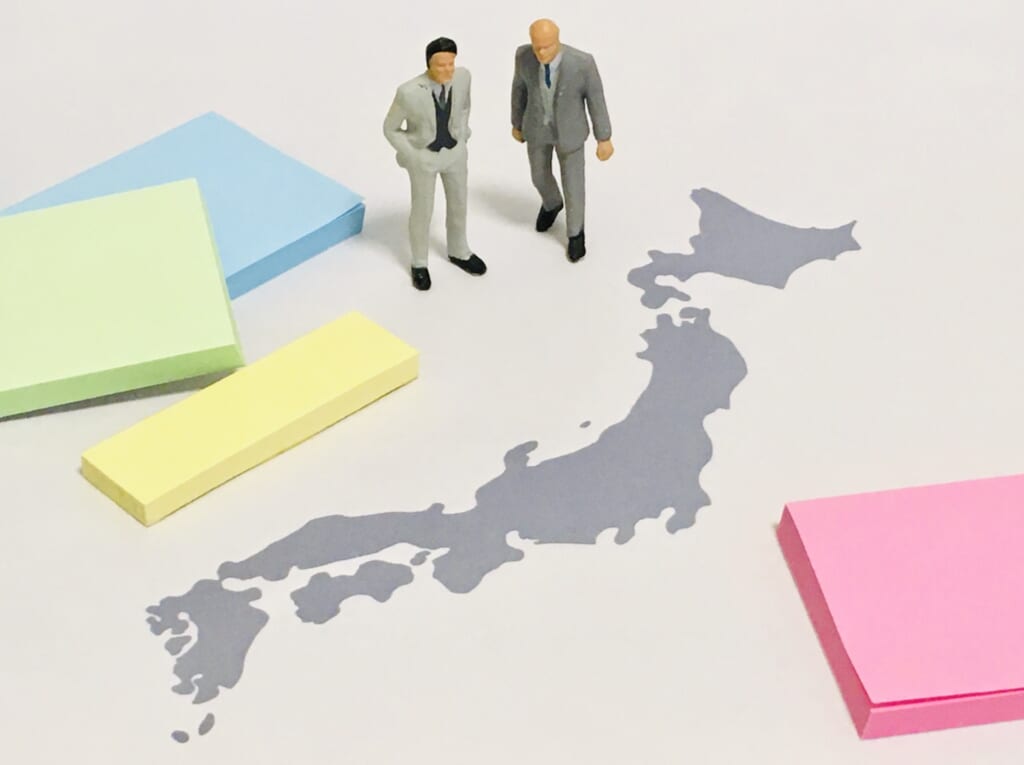Complete Guide to Establishing a Company Office in Japan
How to Establish a Company Office in Japan

Establishing a company office in Japan is an important step for foreign businesses. Understanding legal aspects and the business environment is essential when considering expansion into the Japanese market. First, it is crucial to find law firms and consulting firms familiar with Japanese laws and regulations. Additionally, selecting the appropriate office space and proceeding with the necessary establishment procedures is required. Establishing an office in Japan requires consideration of the local business culture and customs. Successful establishment of a company in Japan often depends on the assistance of reliable partners and experts.
Introduction: Expanding Business in Japan
When foreign companies consider expanding their business in Japan, several critical points need attention. First, understanding the Japanese market and business culture is essential. Japan has its unique business rules and customs, and formulating a strategy based on these is key to success.
Legal regulations and procedures also differ from those abroad, requiring compliance with legal aspects. For example, when a foreign company establishes an office in Japan, it must comply with laws concerning foreign workers and tax regulations.
Furthermore, developing business in Japan requires building good relationships with local companies and partners. In Japanese business culture, personal relationships and trust are highly valued, and networking is a shortcut to success.
Finally, thorough preparation and planning, including market research and competitive analysis, are indispensable. A strategic approach and understanding of market needs are essential to succeed in the competitive Japanese market. It is crucial to proceed with a well-considered plan towards business expansion in Japan.
What is a Company Office?
A Company Office is a base established by a foreign company for conducting business activities within Japan. Typically, offices are established as local corporations or branches to legally conduct business activities and expand market access in Japan. A Company Office serves as a vital facility for customer service, sales activities, and business development. Understanding local laws and regulations is essential for smooth operation, and careful preparation is necessary.
Types of Company Offices in Japan
Understanding the types of company offices in Japan is important for strategizing business expansion. Japan offers several different forms of business bases. One option is to establish a local corporation, which allows independent business operations as a Japanese corporation.
Another option is to establish branches or offices that are closely linked to the parent company and operate under the management of the parent company. It is also possible to open sales offices or representative offices, each with its own advantages and disadvantages, depending on the company’s business strategy, size, and expansion plans.
For example, if a company is entering the Japanese market for the first time and wants to minimize risk, establishing a local corporation might be appropriate. On the other hand, if close coordination with the parent company and financial constraints are considerations, establishing a branch or office might be suitable.
Choosing the most suitable form from these options and preparing accordingly is crucial.
Advantages of Establishing a Company Office in Japan
There are various advantages to establishing a Company Office in Japan. Firstly, Japan is the world’s fourth-largest economy, offering significant market opportunities. Entering this vast market can lead to new business opportunities.
Moreover, Japan is known as a leading nation in science, technology and innovation, attracting talented individuals from around the world. Establishing a Company Office allows for building networks with these talented individuals.
Additionally, Japan offers a stable business environment with reliable legal and regulatory systems, allowing businesses to operate with confidence.
The Japanese consumer market is also highly mature, enabling companies to provide services and products that meet consumer needs.
Thus, establishing a Company Office in Japan can provide various benefits, including abundant business opportunities, access to excellent talent, a stable business environment, and a mature consumer market.
Establishment Procedures and Required Documents
There are various procedures and documents required for establishing a Company Office in Japan. Initially, foreign companies need to follow the establishment procedures based on Japanese law. Required documents include copies of the corporate registry and residency certificates for directors from the headquarters, personal seal certificates for directors, and final financial statements. These documents must be submitted in Japanese, and translation or notarization may be necessary.
Furthermore, notifications and approvals may be required for the establishment of a foreign company’s base as an Office. For instance, certain industries may require licenses for specific operations. Additionally, depending on the location of the Office, notifications based on the Building Standards Law or prefectural ordinances may be required. It is important to seek help from law firms or experts for these procedures and necessary documents.
Step 1: Considering Branches & Representative Offices
When a foreign company considers establishing an Office in Japan, the first step is to consider the form of branches or representative offices. Branches and representative offices differ in form, and choosing the appropriate form to match the business content and objectives is crucial.
Branches depend on the legal entity of the home country company and can perform the same operations as the parent company. Representative offices are legally separate from the parent company and can conduct limited operations such as market research and customer service without engaging in sales activities.

Understanding the differences between branches and representative offices and selecting the appropriate form to align with the business plan is crucial, with expert advice being important.
Step 2: Creating a Business Plan
Creating a business plan is an important step when establishing an Office in Japan. The business plan clarifies the company’s vision and objectives and sets the strategy for business deployment. Initially, understanding the positioning in the Japanese market and the competitive situation is essential. This allows the company to consider how to leverage its strengths and uniqueness.
Next, researching customer needs and consumer preferences in the Japanese market is necessary to evaluate the suitability of products and services. It is also important to develop an appropriate business expansion strategy in line with Japanese business culture and legal regulations.
Additionally, the business plan includes financial planning, such as methods of funding, capital management, sales forecasts, and budgeting for expenses. Specifically, setting concrete figures for promotional expenses, advertising costs, and personnel costs in the Japanese market is important.
Finally, it is important to include an execution plan in the business plan. Clearly outlining specific schedules, milestones, and responsible parties is required for the implementation stage. Creating a business plan involves cooperation with experts and consultants familiar with the Japanese market.
Step 3: Selecting the Registration Location

Selecting the registration location is important for establishing an Office. Initially, the office location needs careful selection as it affects business operations. Considerations include traffic access, the business environment of the area, and office building facilities.
Next, understanding the administrative services and tax system of the selected area is also crucial. Particularly, understanding the support systems and preferential measures of local governments can lead to efficient business operations. Selecting the registration location involves communication with local government agencies, real estate agents, and local business-related organizations.
Step 4: Procedures at the Notary Office
Procedures at the notary office are an important step in the establishment process of a Company Office in Japan. At the notary office, notarial services are conducted to certify the identity and authority of the company and its directors. Specifically, company establishment registration, seal registration, and notarization of contracts are conducted.
Initially, bring the necessary documents and fees to the notary office and proceed with the counter procedures. In the case of company establishment registration, submit information such as the corporate name, address, and names and addresses of directors. This information must be submitted in Japanese. Additionally, if the company is foreign, power of attorney from the headquarters or certified documents may be required.
Next, the procedures at the notary office include document verification and seal stamping by the notary. Once the procedures at the notary office are completed, the notary issues certified documents. These procedures play an important role in giving legal effect to the company establishment.
Accurate document preparation and rule-based procedures are required at the notary office. Therefore, collaboration with experts and partners is essential. To obtain accurate information about the procedures at the notary office, it is important to conduct research and preparation in advance.
Step 5: Application for Registration
Application for registration is an important stage in the establishment of a Company Office in Japan. Initially, confirm the necessary information for registration, such as the company name and location. Next, if the company is a foreign corporation, submit documents for identity verification of the representative and the company’s official seal. Once the necessary documents are prepared, create a registration application form and submit it to the registrar through a judicial scrivener or administrative scrivener.
After the registrar’s review, registration is completed, and a copy of the registry is issued. The registry contains information such as the company’s location, capital, and representatives, serving as a certificate of the corporation. Once registration is completed, the company’s establishment is officially finalized, and preparations to start the business are in place. During the registration process, it is important to receive advice from experts familiar with Japanese laws and procedures. Accurate information submission and compliance with prescribed procedures are crucial in the registration application.
Step 6: Creation and Registration of Company Seals
Creating and registering company seals is an important step when establishing a company in Japan. Initially, company seals are used for legal transactions and contracts, and their creation requires careful consideration. Consult with specialized seal makers to create appropriate seals that meet legal requirements. Additionally, according to legal provisions, obtaining a seal certificate and officially registering it is necessary.
Japanese law typically requires two types of company seals: the representative director’s personal seal (bank seal) and the registration seal (registered at the Legal Affairs Bureau). Accurate registration of each seal, including the name or corporate name, is required. Furthermore, seal registration involves prescribed procedures and document submission. Here, too, accurate procedures and documents are necessary, so support from experts is helpful. Appropriate creation and registration of company seals are essential processes for ensuring the legality of transactions and contracts. This also establishes the company’s credibility and trustworthiness.
Step 7: Opening a Bank Account
Opening a bank account is an important step when a foreign company establishes a Company Office in Japan. In Japan, it is common for corporations to open bank accounts for business activities within the country.
The procedure for opening a bank account typically follows this process:
- First, select the bank where you wish to open an account. Although there are many banks in Japan, choosing the right bank is important, considering factors such as international transfer fees, foreign exchange rates, and internet banking services.
- Next, submit an account opening application form and necessary documents to the selected bank. Common required documents include the corporation’s registry, the representative’s identity document, seal certificate, resume, and business plan.
- Subsequently, the bank conducts document reviews, and once the review is passed, the account opening is completed. The review process may take several weeks to months, so it is important to proceed with a flexible schedule.
Note that procedures and document submissions in Japanese are necessary for bank account opening. Therefore, arrangements for interpreters or translations may also be needed. It is important to proceed smoothly by ensuring effective communication with bank representatives and experts.
Step 8: Notification to the Tax Office
Notification to the tax office is an important step as part of establishing an Office in Japan. The notification to the tax office includes procedures related to corporate tax, consumption tax, and other tax matters. By performing this procedure, the Office is recognized as a corporation in Japan and can fulfill its tax obligations. The notification to the tax office is a procedure conducted after the establishment of the Office, and it is important to perform it without delay.
Appropriate preparation based on Japanese tax laws and regulations is necessary for the notification procedures. It is essential to understand the taxation documents and standards properly and gather the necessary information. Additionally, accurate document preparation and application form filling are important. The notification procedures at the tax office can proceed smoothly with the support of experts. Tax experts support appropriate procedures and help minimize risks related to tax declarations and payments. Accurate information and appropriate support during notification to the tax office can assist in smooth tax operations after the Office establishment.
Legal Requirements for Establishing a Company Office in Japan
Several legal requirements must be met when establishing a Company Office in Japan. First, when a foreign company conducts business in Japan, it must comply with Japanese laws such as the Companies Act, Labor Law, and Tax Law. Especially, receiving advice from Japanese law firms and experts is important.
Additionally, registration procedures for the Company Office are necessary. In Japan, registration based on the Commercial Registration Law is required for establishing a Company Office. The registration requires information about directors, business content, and location.
Furthermore, when a foreign company conducts business in Japan, a notification obligation based on the Foreign Company Act is also required. This notification includes basic information about the foreign company, representative information, and business purposes. Meeting these legal requirements requires close coordination with Japanese legal experts and partners.
Cost and Time Estimates
Cost and time estimates are important for establishing a Company Office in Japan. Understanding the specific costs and time required for procedures helps in planning.
Initially, costs for establishment procedures include fees for law firms and consulting companies, costs for registration procedures, and office space rent. These costs vary depending on the scale of the business, office location, and selection of experts.
Additionally, the time required for establishment procedures is generally estimated to be between three to six months. However, the actual time required can vary depending on the situation of the procedures and reviews by relevant authorities.
In addition to the above estimates, additional costs and time are required after establishment, including tax declarations, business permits, and contract signings. It is important to plan carefully and proceed with the help of experts.
Business Support within Japan
To succeed in business within Japan, various supports are available. First, Japanese lawyers and law firms familiar with Japanese laws and regulations support a wide range of activities from company establishment to business contracts. Additionally, receiving advice from experts in various business areas such as finance, human resources, and intellectual property management is also important.
In Japan, government agencies and local economic bureaus that support foreign companies’ entry also exist, providing broad support from business startup to growth. Moreover, consulting firms and business advisors familiar with the Japanese business environment and market trends can offer comprehensive support in strategic planning and market research. Utilizing these business supports helps in developing strategies to succeed in business within Japan.
Advice for Avoiding Troubles
When foreign companies proceed with establishing an Office in Japan, it is necessary to familiarize themselves with different business cultures and regulations. Especially, adequate preparation is essential to avoid misunderstandings and troubles due to language and communication differences.
First, contract with reliable law firms and consulting companies to obtain accurate information about Japanese laws and labor regulations. Additionally, finding partners familiar with the Japanese business environment and understanding local customs and business practices is important.
Also, attention is needed for contracts and transaction conditions when establishing an Office. Japanese contract formats and transaction conditions may differ from those overseas, so receiving expert advice is important. Gather accurate information about formal procedures and permits from reliable sources to avoid being misled by incorrect information.
By following these steps in establishing an Office, it is possible to avoid troubles and ensure smooth business expansion.
Summary
Establishing a Company Office in Japan involves numerous steps and challenges. Collaborating with experts familiar with local laws and regulations is essential for successfully entering the Japanese market. Additionally, building appropriate partnerships and business-friendly relationships within the “Japan” market is important. Moreover, considering measures that align with the needs and environment of the business area and harmonizing with the local community are essential. And, to succeed, it is crucial to integrate into the local industry and market environment while advancing business expansion. Business expansion in Japan involves many challenges, but with proper preparation and partnership, the chances of success can be grasped.
